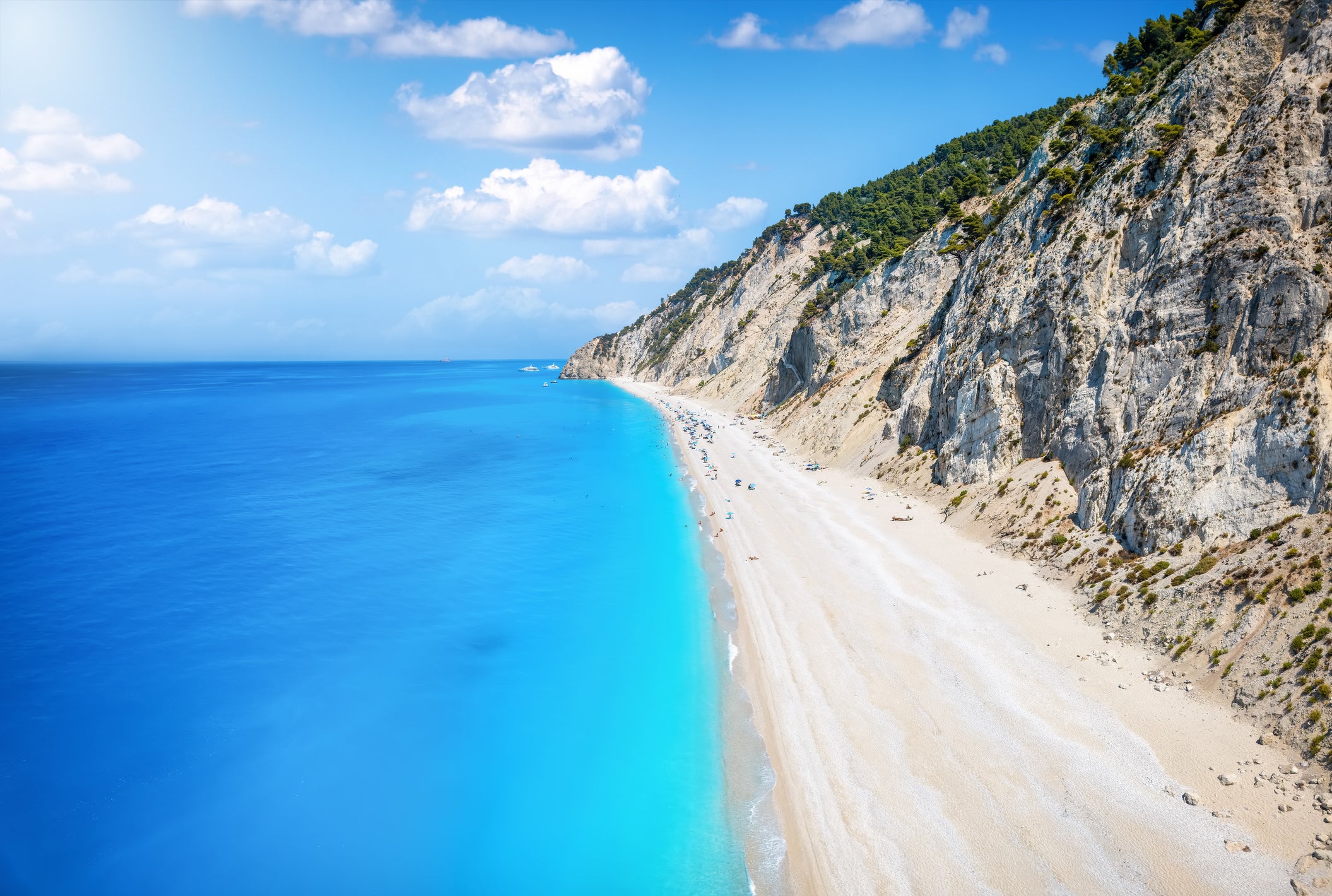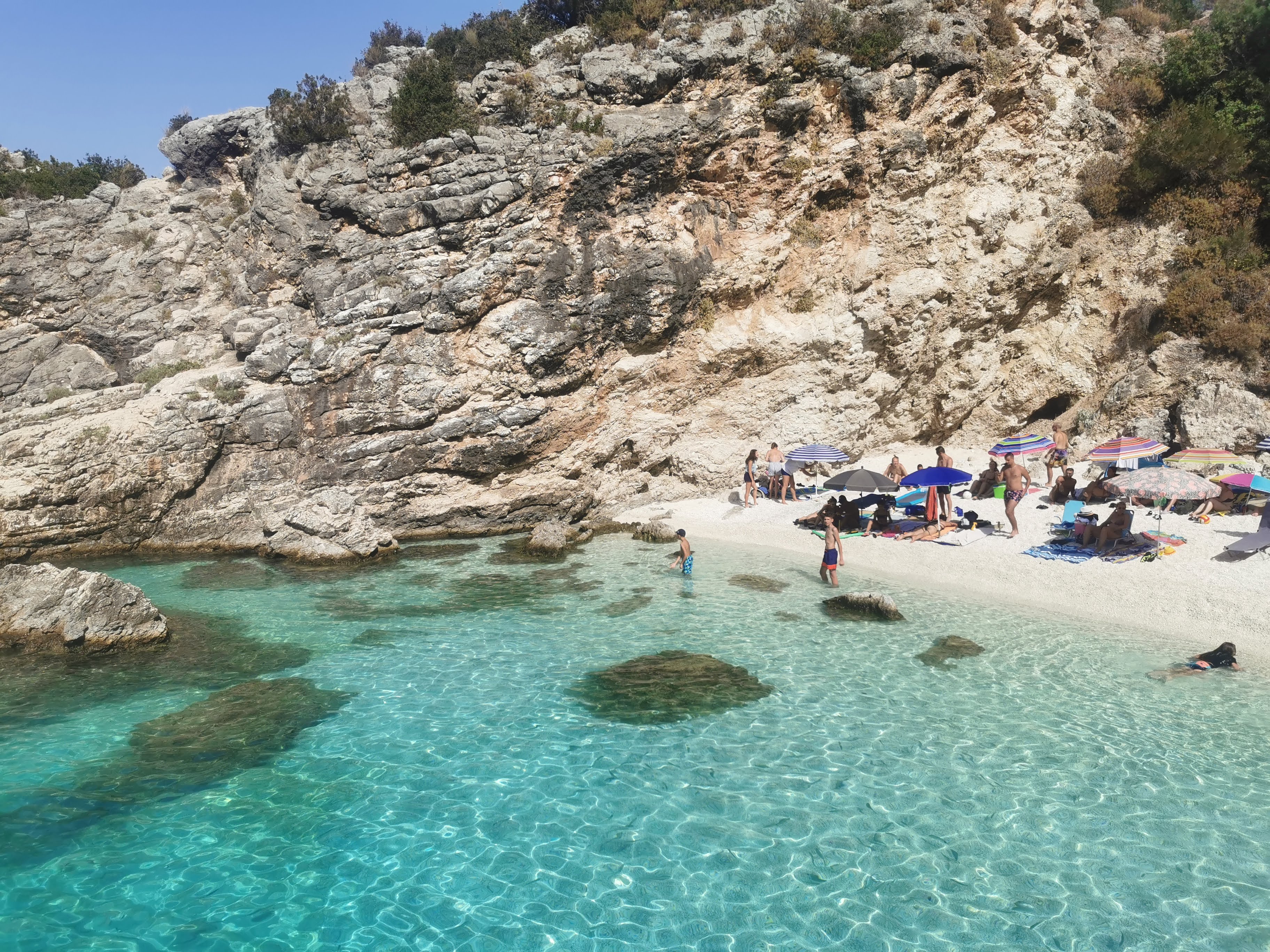The Independent's journalism is supported by our readers. When you purchase through links on our site, we may earn commission.
Greece island hopping: A guide to the best routes and how to explore Greek culture
With 227 inhabited islands in total and six main island regions, Greece offers almost too much choice. Lucy Thackray lays out some of the best routes to help you plan your next island-hopping adventure


Greece’s wide scattering of differently sized, culturally distinct islands makes it a dream for a multi-stop trip. Come May and June, ferry services ramp up for summer, with hops between different islands taking as little as 20 minutes.
Some islands are vast and ripe for exploring, requiring a taxi, hire car or moped to get across their width. In others, you’ll simply find a bijou port and a forested interior, fringed by rocky or sandy coves you can stroll to. Wherever you go, you’ll find waterfront tavernas, petite churches, hushed beaches and sunkissed portside bars. Plus, there are Greek Isles hotels that will seriously make you want to linger.
But where to start? Greece’s ferry networks are complex, with different services available at different times of year; it’s best to use a journey planner such as Ferryhopper.com to check ahead for timings and operators. Services can run late, so leave plenty of time between your last ferry and your flight home – an easy (and stressful!) first-time mistake to make.
Read more: Forget summer holidays – this popular European capital is so much better in winter
Best for first-timers: The Argo-Saronics
Route: Athens-Poros-Hydra-Spetses
Close to the capital of Athens and its port, Piraeus, these islands huddled around the Greek mainland are fab for a first go if you’re not sure island hopping is for you. Spend a few cultured nights in the capital, then hop on the ferry to nearby Poros, just over an hour away: here you’ll find a smart little red-roofed port topped with a clock tower and a handful of hotels and apartments. Dine by the waterfront, then go off in search of the emerald waters at Love Bay.

Just a 35-minute boat ride from here is Hydra, a tiny but glamorous speck which has attracted artists, musicians and photographers since the Sixties. Bask in its romantic port and sunset bars, then walk the coast road to find secret pebble bays, or take a boat trip to its quietest corners.
Next up is Spetses, 45 minutes away – the mellow, car-free island where the 2021 film The Lost Daughter was shot. Seek out its Cave of Bekiris, tiny whitewashed churches and one of the oldest lighthouses in Greece; then take the three-hour catamaran all the way back to Piraeus for a flight out of Athens.
When to go
These undiscovered islands don’t get as much footfall as the Cyclades (below) so you can go in peak July and not feel too much of a crush. However, September is a delightful, quieter time to visit.
Where to stay
In Athens, historic Asomaton is within walking distance of the sights.
Read more: The best Greek island hotels for sea views and romantic retreats
On Poros, try the mellow Saga Hotel for a bougainvillea-draped pool.
On Hydra, the guesthouse Hydra Icons has 360-degree views from its rooftop.
On Spetses, Niriides Guesthouse is a chic three-star with a family-run feel.
Read more: Budget-friendly and blissfully crowd-free – why you need to head for the Greek ski slopes
For classic looks: The Cyclades
Route: Santorini-Milos-Sifnos-Serifos-Paros-Mykonos
There are two key ingredients for a successful island-hopping adventure: cheap and plentiful flights into and out of your start and end point, and plenty of ferry links in between. In the Cyclades, where the houses are tiny and whitewashed and the cliffs and bays dramatic and undeveloped, there are UK flights to both Mykonos and Santorini – so compare prices and consider flying into one and out of the other. You could start on Santorini for its jaw-dropping cliffside views, killer sunsets and upmarket dinners, taking the two-hour Seajets ferry on to Milos after two or three days.

Klima’s brightly painted fisherman’s houses are the top sight here, but head to lunar-like Sarakiniko Beach, too (this island is beach central) and take a boat to the Caves of Milos. Next up is Sifnos, 40 minutes away, where you’re spoilt for pretty whitewashed villages to potter around (don’t miss Chrisopigi Monastery); then to Serifos, 20 minutes on, an unspoiled spot with a particularly beautiful Chora, or port town. You’ve just got time for a stop on Paros (a 55-minute service from Sifnos that appears from the end of April onwards) – which has a slightly more modern feel and a bit of nightlife – before a 40-minute boat on to Mykonos, for ample flights home.
Best time to go
These islands fill up during July and August, so go in early June or mid-September for the best combo of weather and quiet-ish landscapes.
Where to stay
On Santorini, the delightful Vasilicos guesthouse is family-run and tailored to you.
Read more: Best hotels in Santorini for luxury suites and sea views
On Milos, Milos Summer Time is all cerulean-painted shutters and sea views; on Sifnos, the Sigma Residences are the trendy pad du jour.
On Serifos, the team at the stylish Nostos Boutique Hotel will help you get out and explore
On Paros, the affordable Ayeri Hotel is slightly out of the port crush.
On Mykonos, Marisso Hotel is a chilled overnight stop before a flight home.
Read more: The best cruises to see the Greek islands
For unspoiled nature: The Ionians
Route: Lefkada-Kefalonia-Ithaca-Kefalonia-Zakynthos
Substantially larger, with more towns and trails to dig into, these forested isles are some of the nearest to the UK. Flights into Preveza (connected to Lefkada island), Kefalonia and Zakynthos give you flexibility on route and order. We’d suggest flying into Preveza for the first few nights on Lefkada, staying in relaxed Nidri or Vasiliki for boat trips out to its mind-blowingly beautiful beaches. From Vasiliki, you can take the West Ferry to Fiskardo on Kefalonia’s north coast, then spend up to a week seeing undeveloped beaches, pine forests and gorgeous Venetian towns on this dazzling island.

Heading east to Sami port, take the 30-minute boat on to Ithaca, a petite, forgotten-feeling speck of gorgeous wild beaches, tiny port towns and chic guesthouses. From here, you could nip back to Kefalonia and fly home; or voyage 3hr 45m onward to Zakynthos, home to some of the Ionians’ most beautiful beaches. Snorkel with loggerhead turtles or take boats to vivid caves before flying home.
Best time to go
Ferries run between May and September, so go May to early June or September for the best chance of quieter bays and plenty of ferry seats.
Where to stay
On Lefkada, chilled-out apartments like Santa Emelia cost from as little as £85 a night.
Read more: Best hotels in Mykonos, where to stay for beach views and private pools
On Kefalonia, Anthi’s Beach Apartments fit in with the tranquil vibe of Fiskardo.
Further south on Kefalonia, F Zeen is a fitness-focused splurge.
On Ithaca, Korina Gallery Hotel is near the restaurants and boats of Vathy harbour.
On Zakynthos, try the chic Tsamis Zante Suites.
How to save on package deals to Greece
Now is the ideal time to snap up a bargain on package holidays to Greece with major travel providers like Tui, easyJet Holidays and Jet2holidays offering last-minute deals and advanced booking discounts for 2026. For example, right now Jet2holidays is offering £100 off per person for all holidays departing before 15 November 2026 with a myJet2 membership. Registering is free, but if you don’t want to sign up there’s still a £90 saving per person.
Whilst package holidays come with added convenience – with hotel, flights and accommodation covered under one booking – it’s also worth checking the prices of the hotel directly as you can often get a price match or cheaper rate. Visit the hotel’s own website or use the like of Expedia or Hotels.com to compare.
Join our commenting forum
Join thought-provoking conversations, follow other Independent readers and see their replies
Comments